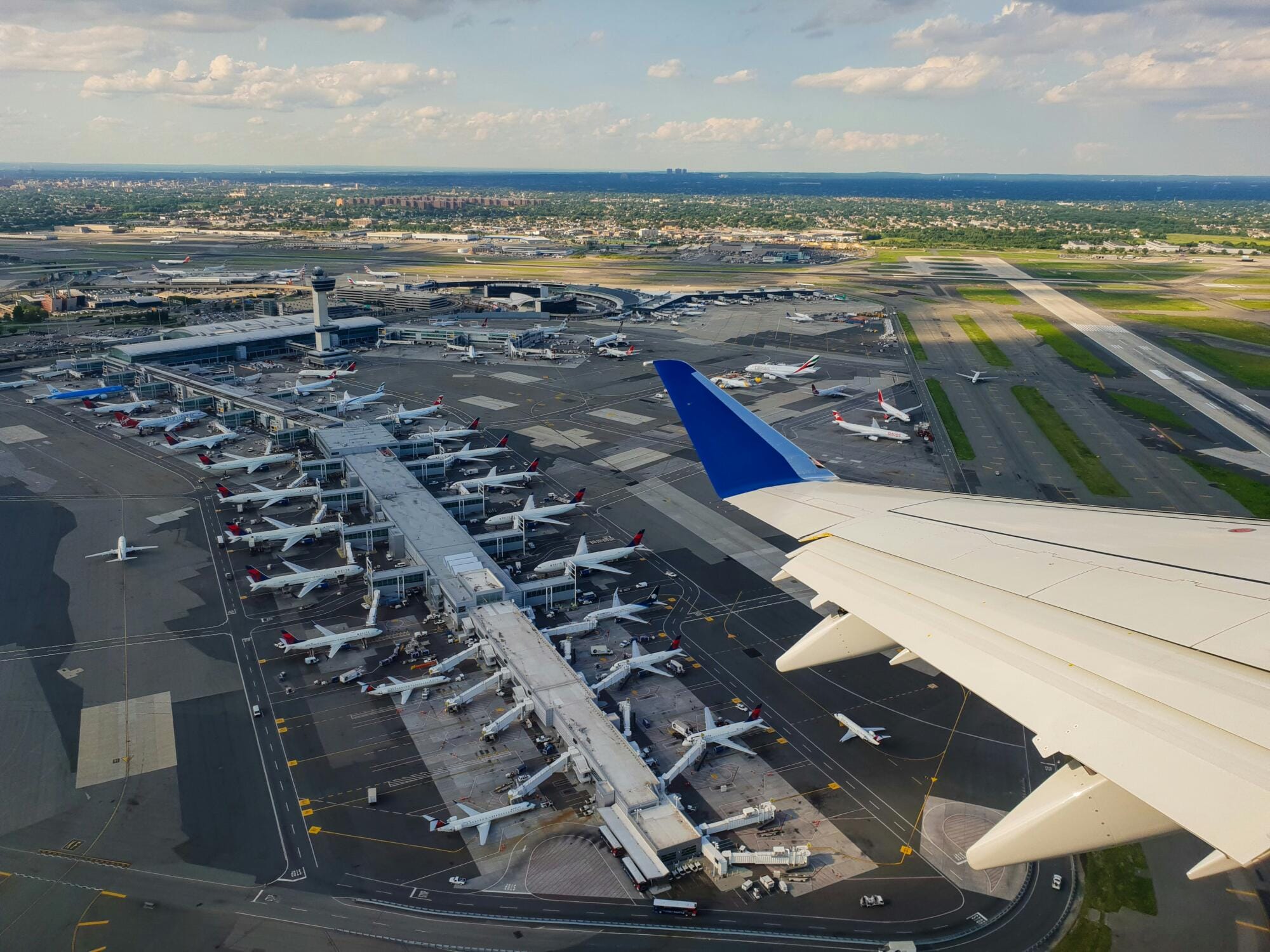Airline profits are soaring in 2024, but drawbacks for travelers and investors persist

Airline companies have been through a gauntlet of business and PR challenges in the last few years. The pandemic put 64 airlines out of business, and pushed many others close to the brink. Technology issues are plaguing carriers and have resulted in catastrophes, like millions of passengers being left stranded during the holidays in 2022, which forced airlines to pay significant fines. And the pilot shortage and staffing issues could continue to cause airlines to trim services at select airports or cancel them all together.
But despite these speedbumps, airlines are seeing a wave of eager travelers this year. At an investor conference, American Airlines’ CEO recently said that “Demand is back.”
According to data from the TSA, the numbers of travelers is up 6.1% year-over-year. So far, almost every day in 2024 so far has seen more flyers go through security compared to the same day in 2023. For international travel, figures are up as well compared to a year ago and even before the pandemic. And while airline ticket prices are roughly at the same level compared to pre-pandemic, the sheer demand for travel is driving significant revenue for the largest carriers.
But rising demand and larger profits for the airlines haven’t necessarily translated into a better experience for travelers or better returns for investors. So whether you’re headed to the airport or about to add a new airline Slice to your M1 Pie, here are a few recent headlines to be mindful of:
JetBlue & Spirit Airlines merger squashed by federal judge
Blue and yellow are clashing colors in any outfit, and a federal judge agreed. The proposed merger between JetBlue and Spirit Airlines was nixed earlier this month, concluding a long court battle that began when the Biden Justice Department sued to put a stop to it. Attorney General Merrick Garland claimed that the merger would hurt consumers with higher airline fares.
This isn’t the first squashed deal in recent memory. Both JetBlue and American Airlines (2023) as well as Spirit and Frontier (2022) tried to create working partnerships but were both struck down due to antitrust laws.
However, this comes after 16 completed mergers since 2010, which brought the total number of U.S. based airlines down dramatically. Since 2008, the number of total U.S. airlines is down 28%. With fewer airline and route choices, consumers can be squeezed for extra profits even while airlines have no incentive to improve service quality.
Interestingly, JetBlue and Spirit didn’t take major hits to their share values following the announcement. In fact, JetBlue stock ascended while Spirit is waiting for any sign of better weather. But for the year so far, the two stocks have had very different performances, as JetBlue is up 34% and Spirit is down over 73% (as of March 15) as it struggles to find profitability.
First class and big spenders are the new priority
Historically, airlines have prioritized flyers who were seasoned travelers. Those who traveled regularly for work or leisure could move up the ranks of each airline’s loyalty program to earn status, which typically comes with perks like free checked bags and cabin upgrades. In recent months, the airlines have flipped the script to favor those who are big spenders, assessing mileage by amount spent rather than actual miles traveled, and effectively making it more expensive to accrue miles quickly. The changes have angered some, but they could prove a boon to airlines. American Airlines said 80% of its revenue this year will come from premium class tickets and its AAdvantage loyalty program.
But it’s not just the ultra-bougie first and business class they’re focused on. In fact, there’s palpable demand along with frothier profit margins in the middle of the airplane: premium economy.
It’s the moderately affordable middle ground between economy and first, and both airlines and travelers seem to love it. In United’s Q3 2023 earnings call, its Chief Commercial Officer said its Premium Plus product is the company’s most profitable cabin. Moreover, a Delta spokesman stated that 70% of travelers who book premium seats will be repeat customers.
On the other side of the coin, let’s take the average, cost-conscious traveler. They fly in economy, don’t pay for a checked bag, and don’t purchase a cocktail on board. This traveler wants to go from point A to point B with no frills or upsells. The airline likely makes little profit on this passenger. Those who fly economy regularly should be mindful of this as adding more premium economy seats could result in less inventory in economy, and even potentially less seat pitch as well.
Checked bag fees are taking off
That checked bag you overpacked will now cost you a few dollars more.
In recent weeks, several major carriers including Alaska, JetBlue, American, United, and Delta, all raised their checked bag fees in lockstep. Now, that one checked bag will run you at least $70 round-trip. And the second checked bag will cost you even more. Southwest remains the only airline to offer two free checked bags per flyer.
Airline executives have cited rising costs for the hike in fees, and that’s not surprising. During the pandemic, airlines slashed change fees, and while I was reporting at Forbes, I predicted that they’d have to make up the difference through other fees. These increased costs will likely drive more flyers to purchase carry-on friendly bags to save money. In fact, The Atlantic recently published a story about the fierce battle for overhead bin space as more people transition to carry-on bags.
The bottom line on the airline industry
More Americans are taking to the skies than they were pre-pandemic, which can be a sign for a healthy and growing economy. As an investor, you may look around on your next trip and see a full airport and wonder how airline stocks are doing post-pandemic.
But keep in mind that while the skies may be packed and profits continue to soar, that doesn’t mean the respective stocks will take off in tandem. The share prices of the big four (United, Delta, American and Southwest) haven’t recovered to their 2019 levels. The JETS ETF, which holds a long list of airline stocks, is down 18% (as of Mar. 8) since its inception in 2015.
So as always, do your best due diligence before hitting the buy or sell button. And please don’t bring your spare cannonball on your next flight.
20240315-3441567-10956891
- Categories
- Invest



